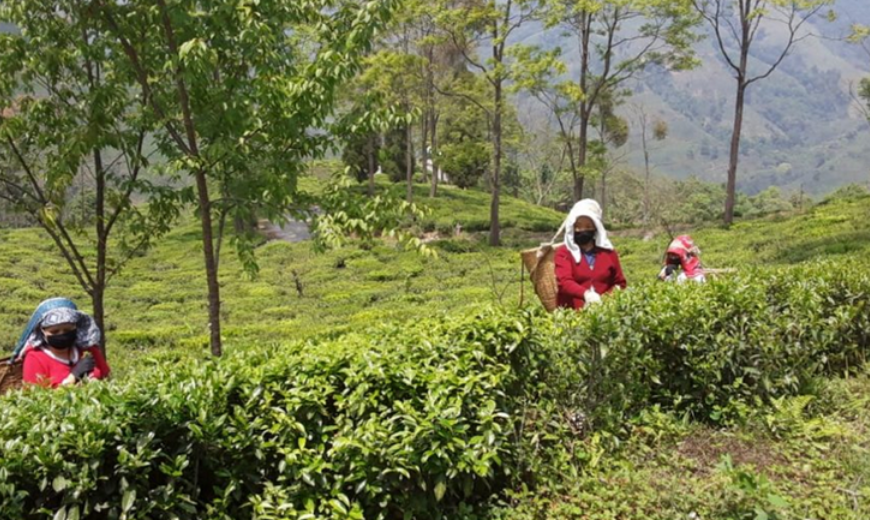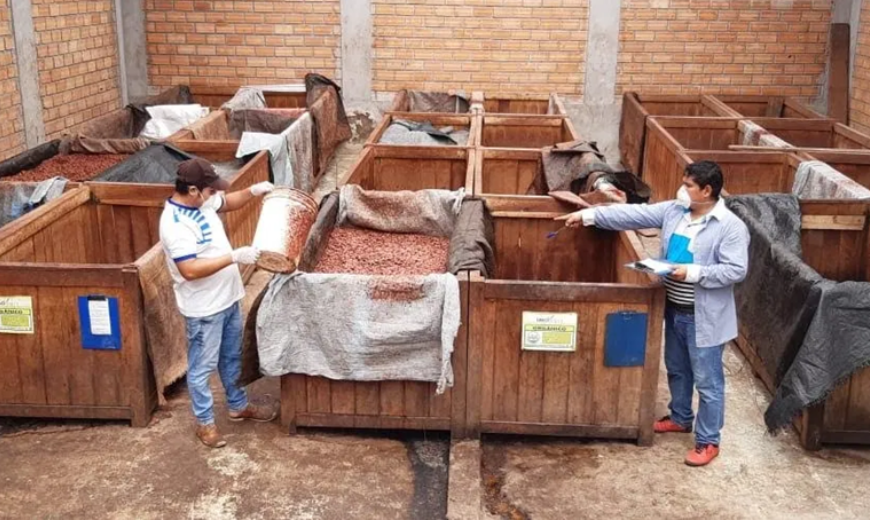6 May 2020
Safety first: How farmers and workers are rising to the challenge of COVID-19
When we think about essential workers, the image of doctors and nurses typically comes to mind. Their job is undoubtedly critical, yet at Fairtrade International we also want to spotlight other frontline heroes who might often go unnoticed: farmers and workers.
From garment sewers to tea pickers, from banana plantation labourers to cotton mill workers - all over the world, millions of workers have been hit hard by the impacts of COVID-19. Two million Bangladeshi textile workers face being laid off. In East Africa, tens of thousands of flower pickers are idle. According to the International Labour Organization (ILO), nearly half the world's workers are at immediate risk of losing their jobs.
For those workers lucky enough to keep their jobs, the risks are huge. Labour intensive farming such as tea, coffee and cocoa require large numbers of people working in close proximity. Healthcare systems in many developing countries are already stretched by the “big three”: HIV-AIDS, TB and malaria. Despite the risks, many farmers and workers continue their work, which is critical to ensuring our food supply.
As Fairtrade International CEO Dario Soto Abril recently wrote to the G20, urgent action is needed both to protect jobs and protect workers. “We are deeply concerned about the effects that the virus will have on farmers and workers across the developing world, including those producing food and other goods that G20 countries rely on. There is an urgent need to provide humanitarian measures to protect people’s health and lives while at the same time support economic measures to ensure continued livelihoods.”
Fairtrade producer organizations are demonstrating care, responsibility and leadership to mitigate the economic and health effects of the COVID-19 pandemic. We’re sharing three of the many examples of how organizations across the world are ramping up their efforts to protect the health and safety of their members.
Tea Promoters India – India
At Tea Promoters India, work has resumed with limitations. Following government requirements that allow only 50 percent of workers to return to tea estates, they have strived to ensure even distribution of work and pay.

After much deliberation and assessment of potential risks, Tea Promoters India decided to rotate shifts between two groups, each shift consisting of 50 percent of their workers. In addition, on-site measures have been put in place according to COVID-19 protocols, from distancing to recurrent sanitization.
ACOPAGRO - Peru
Despite the state of emergency, the Cooperativa Agraria Cacaotera (ACOPAGRO) have continued their cocoa collection activities in San Martin, Peru, taking measures to prevent the spread of COVID-19.
“All necessary measures are being taken. In these four weeks, we have worked so that collection activities continue in all the 50 collection centers, to keep buying cocoa from our producers,” explains Pamela Esquivel, commercial manager of ACOPAGRO.

The cooperative designed a protocol of preventive measures for the collection centers, which included drawing circles on the floor so that producers can wait their turn, while respecting the required social distance. Mandatory masks and hand sanitizer have also been made available so that they can clean their hands frequently.
Read more
Thailand - Nam Om Community Enterprise Group
The Nam Om Community Enterprise Group was one of the first to adopt strict preventive measures in Thailand.
The entire office was sanitized with alcohol, barriers have been erected to prevent contamination, and staff are regularly reminded to their wash hands, wear masks and avoid mass gatherings. If a meeting is unavoidable, social distancing by attendees is compulsory.
Guidance from Fairtrade
 |
Fairtrade International is committed to keeping producers, workers, traders, families and communities as safe as possible during the coronavirus pandemic. As a general principle, employers are responsible for protection and risk prevention, while workers have a responsibility to take care of themselves and co-workers, and to use personal protection equipment (PPE) correctly. It should also be reiterated that the pandemic must not be used as an excuse for weakening hard-won human, workers’ and gender rights. In consultation with the Fairtrade Producer Networks and others, we have produced guidelines which draw on advice from, among others, the World Health Organization (WHO), International Labour Organization (ILO), the International Union of Food, Agricultural, Hotel, Restaurant, Catering, Tobacco and Allied Workers’ Associations (IUF) and UNICEF. These guidelines only cover the basics for the self-employed, employers and workers. We do not suggest the guidelines are either exhaustive or exclusive, and we will update them as further recommendations are provided by the bodies named above. |